
For our 2024 rankings, the research team at Nursing Schools Almanac collected data on nearly 3,000 nursing schools and campuses throughout the United States. We included the following states within our West rankings: Alaska, California, Colorado, Hawaii, Idaho, Montana, Nevada, Oregon, Utah, Washington, and Wyoming. We evaluated each nursing school in the region on three dimensions:
- The institution’s academic prestige and perceived value
- The breadth and depth of nursing programs offered
- Student success, particularly on the NCLEX licensure examination
We then combined these assessments into an overall score and ranked the schools accordingly. For a detailed description of our assessment methodology and dimension weights, please see here.
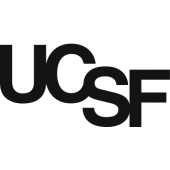
#1: University of California, San Francisco
Over the past decade, the UCSF School of Nursing has received more research funding from the National Institutes of Health than any other nursing school. The university’s master of science in nursing program offers more than a dozen tracks, including several clinical nurse specialist and nurse practitioner roles. In addition, UCSF conducts a master’s entry program in nursing (MEPN) which prepares non-nurses for initial licensure. MEPN graduates have achieved an outstanding 94% first-time pass rate on the National Council Licensure Examination over the past decade. The university also offers an online master of science in healthcare administration and interprofessional leadership (MS-HAIL), a doctor of nursing practice degree, and PhD tracks in both nursing and sociology.
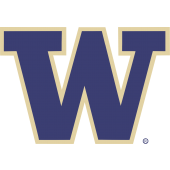
#2: University of Washington
The University of Washington School of Nursing has been a top-rated nursing school by U.S. News & World Report for twenty years. UW offers the full breadth of nursing degrees: traditional and accelerated BSN programs, an MS in clinical informatics and patient-centered technologies, a PhD in nursing science, and 11 DNP tracks. Students can also pursue graduate certificates in areas ranging from palliative care to nurse-midwifery. UW’s graduating BSN class of 130-150 students annually has passed the NCLEX exam at a strong 93% first-try rate over the past decade.
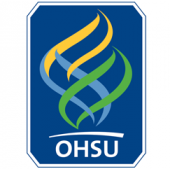
#3: Oregon Health & Science University
OHSU School of Nursing is one of the state’s largest nursing schools, with an enrollment of 1,100 students across five campuses (Portland, Ashland, Monmouth, La Grande, Klamath Falls) and online. OHSU offers a traditional BSN at all five campuses, an accelerated BSN in Portland and Ashland with seamless MSN/DNP transition, and an RN-to-BSN program in Portland and online. Traditional BSN students have achieved a first-time NCLEX pass rate of 90-95% in each of the past eight years. Accelerated BSN students have fared even better, consistently posting 93-99% NCLEX pass rates throughout that period. OHSU offers graduate specialties in nurse anesthesia, nurse midwifery, and four nurse practitioner roles: family, adult-gerontology acute care, psychiatric-mental health, and pediatric.
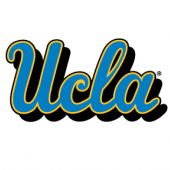
#4: University of California, Los Angeles
The UCLA School of Nursing has earned numerous national accolades. U.S. News & World Report consistently ranks the school among the top 25 nationwide for graduate nursing studies. UCLA is also ranked #12 in NIH research funding for nursing schools over the past decade. Approximately 600 nursing students are enrolled across the university’s BSN, MSN, and PhD programs. The MSN program offers a direct-entry track for non-nurses which leads to CNL certification, as well as numerous advanced practice tracks in various NP and CNS specialties. UCLA students are well-prepared for licensure: the school’s BSN graduates have achieved an 87% first-time NCLEX pass rate over the past decade, while direct-entry MSN candidates have scored an 89% first-time NCLEX pass rate.
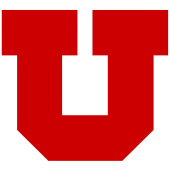
#5: University of Utah
The University of Utah College of Nursing produces 250-300 graduates annually across its many nursing programs. Prelicensure BSN students have achieved an impressive first-time NCLEX-RN exam pass rate of 93% over the past decade. The college also offers an online RN-to-BSN completion program for existing registered nurses; MSN focuses in care management, education, and informatics; and eight DNP specialty tracks, including seven nurse practitioner roles and nurse midwifery. The University of Utah’s distance PhD program has both BSN-to-PhD and MSN-to-PhD tracks, and the College of Nursing consistently ranks among the top 25 nursing schools nationwide in NIH research funding.
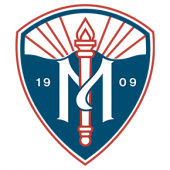
#6: Samuel Merritt University
Samuel Merritt University has prepared professional nurses for a century. Undergraduates can enroll in either a traditional or accelerated BSN program. Across the two pathways, SMU graduates 350-400 BSN students each year who have passed the NCLEX exam at an 89% rate over the past decade. Just as impressively, the school’s entry-level MSN program, which graduates 80-100 students annually, has an 88% NCLEX exam pass rate over that same time period. MSN students may prepare for careers as a case manager or family nurse practitioner. The university also offers a DNP degree with specializations in anesthesia, family nurse practitioner, and psychiatric-mental health nurse practitioner. All SMU nursing students have access to global medical mission opportunities as well as the Health Sciences Simulation Center, one of the region’s most advanced healthcare simulation facilities.
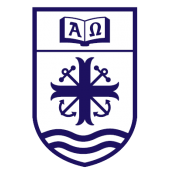
#7: University of Portland
The University of Portland School of Nursing awards BSN, MSN, and DNP degrees. The baccalaureate program incorporates study abroad experiences in countries like Australia, Italy, the United Kingdom, and Tanzania. UP produces approximately 200 BSN graduates annually who have averaged a solid 89% NCLEX pass rate over the past decade. The graduate program employs a convenient hybrid delivery model of monthly immersion weekends and online learning modules. UP offers an MSN degree with clinical nurse leader and nurse educator tracks, as well as a DNP program with a family nurse practitioner population focus.
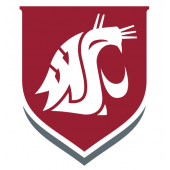
#8: Washington State University
The WSU College of Nursing has educated more than 8,000 nursing professionals since 1968. The school offers programs at five campuses in Spokane, the Tri-Cities, Vancouver, Walla Walla, and Yakima. Undergraduates may pursue a traditional BSN at three sites (Spokane, the Tri-Cities, Yakima) or a flexible RN-to-BSN program at all five. The college graduates approximately 250 prelicensure BSN students each year, with a solid 88% NCLEX pass rate over the past decade. In graduate study, WSU offers two MSN tracks (nurse leader, nurse educator), three DNP tracks (family nurse practitioner, psychiatric-mental health nurse practitioner, population health nurse), and a nursing PhD program. All graduate programs support multiple entry points.

#9: University of Colorado, Anschutz Medical Campus
In 1965, the University of Colorado (CU) College of Nursing instituted the first nurse practitioner and school nurse programs in the United States. In 2005, the college became one of the first seven schools in the nation to launch the new DNP program. Today, the College of Nursing enrolls approximately 1,000 students across a wide breadth of nursing degree and certificate programs. Undergraduates can pursue five BSN pathways: traditional, honors, accelerated, an integrated community college partnership, and RN-to-BSN. For an astonishing twelve years in a row, the college’s 200-plus annual BSN graduates have passed the NCLEX exam at a 91% or higher rate. At the graduate level, CU offers eleven MSN specialty tracks, a distance-accessible PhD program, a DNP degree with a public health nursing (PHN) focus, and a dual DNP/MPH track.
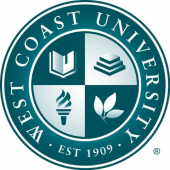
#10: West Coast University
West Coast University operates two campuses in Los Angeles – the North Hollywood nursing school and the downtown Center for Graduate Studies – with additional sites in Orange County and Ontario. The school’s modern campuses feature LEED buildings and state-of-the-art simulation centers. Traditional BSN and LVN-to-BSN degree programs are available in all three cities. The BSN program has grown rapidly since its recent launch, with over 1,000 graduates in each of the past five years. During that timeframe, WCU students have averaged an impressive 91% first-time pass rate on the NCLEX licensure examination. The university also offers a wealth of online nursing programs including RN-to-BSN, RN-to-MSN, four MSN tracks, and an FNP certificate.
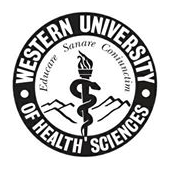
#11: Western University of Health Sciences
The College of Graduate Nursing at Western University of Health Sciences launched the nation’s first online curriculum for family nurse practitioners. The school also established the first DNP and direct-entry MSN programs in Southern California. CGN’s direct-entry MSN students have passed the NCLEX exam at a strong 92% rate over the past decade. In addition to direct entry, the MSN program offers a bridge option for RNs with an associate degree in nursing. MSN students can choose to specialize as administrative nurse leaders, clinical nurse leaders, ambulatory care nurses, or family nurse practitioners. A post-master’s FNP certificate is also available.
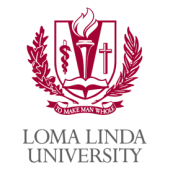
#12: Loma Linda University
At Loma Linda University, students have access to the largest medical simulation center in the United States. They are also proximally located to Loma Linda University Medical Center, which hosts some of the nation’s largest clinical programs. Undergraduate pathways include the traditional BSN, accelerated BSN for non-nursing degree-holders, LVN-to-BSN, and RN-to-BSN. LLU graduates more than 150 students annually from its prelicensure BSN pathways, with a solid 89% first-time NCLEX pass rate over the past decade. The university also offers MSN tracks for aspiring CRNAs, nurse administrators, and nurse educators, in addition to DNP and nursing PhD programs.
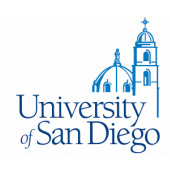
#13: University of San Diego
U.S. News & World Report consistently ranks USD’s Hahn School of Nursing and Health Science in the top tier of graduate nursing schools. USD offers a direct-entry MSN option for non-nurses; this pathway graduates 50-60 new nurses each year and has maintained a 92% NCLEX pass rate over the past decade. Existing nurses can pursue an MSN in eight different areas of emphasis, a DNP with two entry points (post-BSN, post-MSN), or a PhD with three entry points (post-BSN, post-MSN, post-DNP). In addition to a diverse collection of graduate offerings, Hahn provides the opportunity to participate in international mission trips to Haiti and the Dominican Republic.
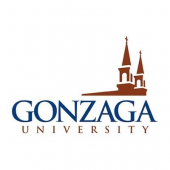
#14: Gonzaga University
Gonzaga University’s School of Nursing & Human Physiology offers a variety of baccalaureate, master’s, and doctoral nursing programs. Undergraduates can pursue a traditional prelicensure BSN. Admission occurs during freshman year and is highly competitive. Not surprisingly, BSN students perform exceptionally well on the NCLEX licensure exam, posting a 94% first-time pass rate over the past decade. Gonzaga’s MSN program is offered entirely online, featuring three entry points (traditional, post-ADN, second master’s) and three specialty tracks (health systems leadership, family nurse practitioner, psychiatric mental health nurse practitioner). The university offers two doctoral nursing programs: a doctor of nurse anesthesia practice (DNAP) ranked in the top 20 nationally by U.S. News & World Report, and an online DNP.
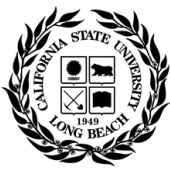
#15: California State University, Long Beach
The CSULB School of Nursing graduates 100-200 new nurses annually through its prelicensure BSN program, which features both traditional and second-degree pathways. These students have enjoyed a stellar 97% NCLEX exam pass rate over the past ten years. CSULB also offers an RN-to-BSN completion program and a broad range of MSN degrees and graduate nursing certificates. MSN students can specialize in one of six nurse practitioner fields, advanced public health nursing, or nursing and health systems executive management. Certificates are also available for six NP roles: adult-gerontology acute care, adult-geriatric, family, pediatric, psychiatric-mental health, and women’s health.

#16: Regis University
The Loretto Heights School of Nursing (LHSON) offers a broad range of nursing degree and certificate programs. Undergraduates can choose one of five BSN pathways: traditional, accelerated (for non-nursing college graduates), CHOICE (for individuals working in healthcare), RN-to-BSN, or RN-to-BSN/MSN. Across the three prelicensure pathways, BSN graduates have averaged a strong 92% NCLEX exam pass rate since 2012. The graduate nursing department provides MSN tracks in education, management, family nurse practitioner, and neonatal nurse practitioner, as well as graduate certificates in most of these fields. LHSON also leads a two- to three-year DNP program that students may complete 100% online.

#17: Seattle University
The Seattle University College of Nursing offers a unique nursing curriculum that combines local and international nursing education. Students may take single academic courses abroad or enroll in a short- or long-term study abroad experience. Locations run the gamut from South America to Africa to Australia. The college offers a four-year BSN program as well as traditional and non-nurse immersion pathways to a DNP degree. Prelicensure students perform well on the NCLEX exam: over the past decade, 87% of BSN students and 94% of graduate immersion students passed the exam on their first attempt. Graduate students can choose from several nurse practitioner specializations, nurse midwifery, or advanced community public health nursing.
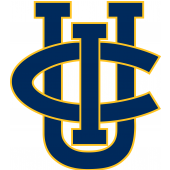
#18: University of California, Irvine
The Sue & Bill Gross School of Nursing offers BSN, MSN, PhD, and DNP degrees. The BSN program accepts freshman applicants and transfers from other schools. Each class is small with ~50 students, and BSN graduates have maintained a healthy 87% NCLEX pass rate over the past decade. The Master’s Entry Program in Nursing (MEPN) is designed for students with a non-nursing bachelor’s degree. The program’s innovative curriculum features a desirable concentration in Community and Population Health. UC Irvine’s PhD in Nursing Science offers four broad focal areas: health promotion and disease prevention, health disparities and diversity, disease and symptom management, and health services and policy. In 2018, the university launched a DNP curriculum which provides both a post-master’s track and a family nurse practitioner (FNP) track. The FNP concentration is the first and only program of its kind currently offered by a University of California campus.
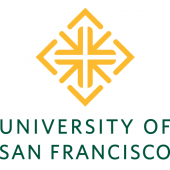
#19: University of San Francisco
The USF School of Nursing and Health Professions was the first California institution to offer a DNP for working nurses. The school also offers prelicensure BSN and MSN programs, an online MSN program with two entry points (post-ADN, post-BSN), and a traditional campus-based MSN program at several locations in the San Francisco and Sacramento metropolitan areas. USF’s combined “4+1” bachelor’s and master’s program culminates with an MSN-CNL, master of public health (MPH), MS in behavioral health, or MS in health informatics. Prelicensure students consistently perform well on their licensure exams: over the past decade, 88% of BSN graduates and 90% of direct-entry MSN graduates have passed the NCLEX-RN exam on their first try.
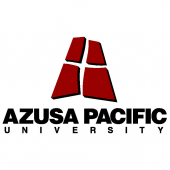
#20: Azusa Pacific University
Azusa Pacific University School of Nursing has a program for every career objective. Undergraduates can pursue a four-year BSN, an LVN-to-BSN bridge, an RN-to-BSN completion program, or the Two-Plus-Two BSN. The final option is a unique track designed for APU transfer students. Prelicensure BSN candidates have passed the NCLEX exam at a solid 84% first-time rate over the past decade. The university’s MSN curriculum features specialties in nursing education, school nursing, two clinical nurse specialist areas, and four nurse practitioner roles. Azusa Pacific University also offers a DNP program, a nursing PhD program, and eight post-master’s nursing certificates.
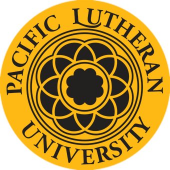
#21: Pacific Lutheran University
The School of Nursing at Pacific Lutheran University offers a top-tier MSN program with several entry points and specializations. Entry points include the traditional post-BSN program, an RN-to-MSN pathway for nurses with a bachelor’s degree in another field, and an entry-level program for non-nurses. Students can specialize as either an advanced generalist or a clinical nurse leader. The entry-level MSN program is select, admitting just 20-30 candidates each year, and its students have maintained an exceptional 94% NCLEX exam pass rate over the past decade. The School of Nursing also offers two BSN pathways – traditional and LPN bridge – as well as a DNP program that prepares aspiring family nurse practitioners and psychiatric-mental health nurse practitioners. Approximately 80 BSN graduates annually have averaged a 93% NCLEX pass rate over the past decade.
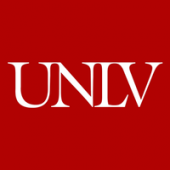
#22: University of Nevada, Las Vegas
The UNLV School of Nursing has a unique trimester system which allows students to complete the BSN curriculum in just 16 months. The university admits 72 students into the traditional BSN program each trimester, plus an additional 32 students annually into the accelerated second degree BSN program. Graduates have achieved an exceptional 95% first-time NCLEX pass rate over the past decade, well above state and national averages. At the graduate level, UNLV offers master’s, graduate certificate, and doctoral specializations for aspiring family nurse practitioners, nurse educators, nurse executives, and psychiatric-mental health nurse practitioners. The school’s DNP curriculum offers post-BSN and post-MSN entry points, while its PhD curriculum offers traditional, accelerated, and post-DNP tracks.
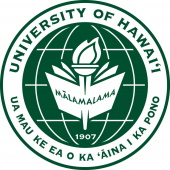
#23: University of Hawaii at Manoa
UH Manoa’s School of Nursing and Dental Hygiene (SONDH) is the only Hawaiian nursing school ranked by U.S News & World Report for its online MSN program. UH Manoa is also Hawaii’s only doctoral and research-intensive university. SONDH offers five BSN pathways including a traditional program for current university students, a high school direct entry option, and three RN-to-BSN programs. Graduate students can pursue an MSN, DNP, or PhD degree, again with multiple pathways including non-nursing bachelor’s, post-BSN, and post-MSN. Prelicensure students consistently pass the NCLEX exam at solid rates: over the past eight years, BSN graduates achieved an 86% pass rate and direct-entry MSN graduates achieved an 84% pass rate.
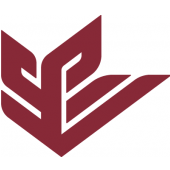
#24: Seattle Pacific University
Seattle Pacific University’s School of Health Sciences has educated thousands of nursing graduates over the past eighty years. SPU students have access to clinical rotations at premier local institutions like Harborview Medical Center and Seattle Children’s Hospital. They can also engage in study abroad opportunities; past destinations have included Guatemala, Ireland, and Vietnam. The School of Health Sciences offers a traditional upper-division nursing major, an MSN program, and a recently launched DNP program. Undergraduates have enjoyed a solid NCLEX pass rate of 88% over the past decade. MSN students can choose from two specialty pathways (clinical leadership in practice, nurse educator), and DNP students can choose from three specialty pathways (clinical nurse specialist, adult-gerontology nurse practitioner, family nurse practitioner).
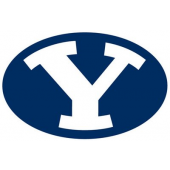
#25: Brigham Young University
BYU College of Nursing is home to nearly 400 nursing students from 38 states and four international countries. The college offers two degree pathways: a prelicensure BSN program for aspiring registered nurses and an MSN degree for aspiring family nurse practitioners. BYU awards approximately 100-125 baccalaureate degrees and a dozen master’s degrees in each academic year, and these nursing students achieve stellar test scores. The college’s BSN graduates have passed the NCLEX exam at a 94% rate or higher for an amazing eleven consecutive years, including a perfect 100% pass rate for the graduating class of 2018. Several recent MSN cohorts have also achieved a perfect 100% pass rate on the American Nurses Credentialing Center FNP certification exam.
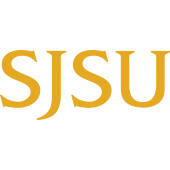
#26: San José State University
SJSU’s Valley Foundation School of Nursing offers several education pathways. Undergraduates may pursue a traditional BSN, an RN-to-BSN completion program, or the unique post-baccalaureate Wound & Ostomy Education Program. The latter option prepares WOC nurses for certification by the Wound, Ostomy and Continence Nursing Certification Board. SJSU graduates 80-120 prelicensure BSN students annually, who have enjoyed an impressive 90% first-time NCLEX pass rate over the past decade. At the graduate level, SJSU offers an MSN degree with two specialty areas (nurse educator, family nurse practitioner) and a post-master’s DNP pathway. The cohort-based DNP program is conducted primarily online, with one mandatory on-campus meeting at the start of each semester.
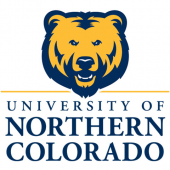
#27: University of Northern Colorado
The UNC School of Nursing offers online and on-campus programs at both the undergraduate and graduate levels. Undergraduate options include traditional BSN, second-degree BSN, and RN-to-BSN completion programs. UNC’s prelicensure BSN students have earned remarkably strong and consistent scores on the NCLEX licensure exam, passing at a rate between 88% and 98% for 13 consecutive years. Graduate students can pursue certification as an adult-gerontology acute care nurse practitioner or a family nurse practitioner through the university’s MSN degree, post-MSN certificate, or DNP degree programs. The School of Nursing also offers clinical nurse leader (MSN) and nursing education (certificate or PhD) emphases.
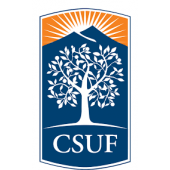
#28: California State University, Fullerton
The School of Nursing at California State University, Fullerton has several graduate programs ranked highly by U.S. News & World Report, including nurse midwifery and nurse anesthesia. Numerous other degree options are available, including LVN-to-BSN, traditional BSN, accelerated BSN, four MSN specializations (leadership, nurse educator, school nursing, women’s healthcare), and a post-master’s DNP program. CSU Fullerton also offers a school nurse services credential (SNSC) and a post-SNSC MSN pathway for those who already hold the credential. Over the past decade, graduates of the traditional and accelerated BSN programs have collectively passed the NCLEX-RN licensure exam at a solid 92% rate.
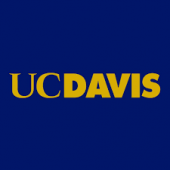
#29: University of California, Davis
The Betty Irene Moore School of Nursing at UC Davis offers several different nursing education pathways. Options include a master’s entry program in nursing with PHN certification, a traditional MSN program with leadership and FNP tracks, and a nursing science and healthcare leadership PhD. Graduates of the master’s entry program are qualified to take the NCLEX-RN licensure examination. Students in the FNP specialization have the option to enroll in a dual-track pathway which prepares them simultaneously for the professions of family nurse practitioner and physician assistant. These are the only FNP and physician assistant programs where students learn together to practice collaboratively with clinicians in a variety of settings.
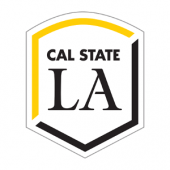
#30: California State University, Los Angeles
Cal State LA’s Patricia A. Chin School of Nursing offers a breadth of educational pathways. Graduate students can pursue an MSN degree, a post-master’s certificate, or a DNP degree. The MSN program has specialty tracks in nursing administration, nursing education, and four nurse practitioner fields. Existing MSN-holders can pursue a graduate certificate in any specialty area. The school’s DNP program is offered through a consortium with Cal State Fullerton and Cal State Long Beach. Cal State LA’s undergraduates have three options: traditional BSN, RN-to-BSN, and accelerated 15-month BSN (formerly the entry-level MSN program). Over the past decade, prelicensure BSN students have enjoyed a strong 95% first-time pass rate on the NCLEX licensure examination.
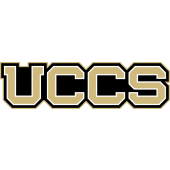
#31: University of Colorado, Colorado Springs
UCCS’s Helen and Arthur E. Johnson Beth-El College of Nursing & Health Sciences has one of the top online MSN programs in the nation, according to U.S. News & World Report. The program prepares students as primary care nurse practitioners, with two population foci: adult-gerontology and family. UCCS also offers an online DNP degree and four BSN pathways: traditional, accelerated, RN-to-BSN, and dual enrollment. The college graduates approximately 100 prelicensure BSN students each year, achieving an impressive NCLEX-RN pass rate of 91% since 2012.
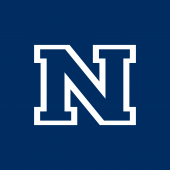
#32: University of Nevada, Reno
The Orvis School of Nursing is the oldest nursing school in Nevada. As a land-grant institution, the school serves the people of Nevada and the professional community at large. Degree pathways include a traditional BSN, an RN-to-BSN completion program, five MSN tracks, a dual MSN/MPH degree, and a DNP program. Approximately 125 traditional BSN students graduate each year, and they have passed the NCLEX exam at an impressive 92% rate over the past decade. Graduate students can pursue certification as a nurse educator, clinical nurse leader, or nurse practitioner in the fields of adult-gerontology, family, and psychiatric-mental health.
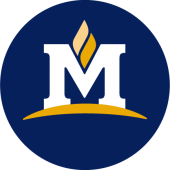
#33: Montana State University
The Montana State University College of Nursing is the state’s largest supplier of baccalaureate-educated nurses. It is also the state’s sole provider of graduate nursing education. The college offers BSN, MSN, and DNP degree programs. BSN students can pursue a traditional, accelerated, or LPN-to-BSN pathway depending upon their educational background. More than 200 students graduate the prelicensure BSN curriculum each year. These students have scored a 90% NCLEX pass rate over the past decade, well above state and national averages. The MSN program prepares students for the clinical nurse leader role with a focus on rural practice. The DNP curriculum offers two nurse practitioner specialty tracks.
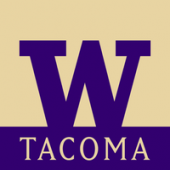
#34: University of Washington Tacoma
UW Tacoma has two programs for aspiring nurses: an RN-to-BSN offering and an MSN degree. The RN-to-BSN curriculum supports registered nurses in their professional development with a broad range of relevant coursework. Popular courses include Clinical Nursing Phenomena; Diversity, Health, & Inequities; Ethical Issues in Healthcare; and Genetics, Genomics, & Nursing Practice. The MSN program has two curriculum options: leader in healthcare delivery and nurse educator. This 47-credit-hour program may be completed in just seven quarters, which includes two quarters of fieldwork.
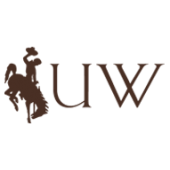
#35: University of Wyoming
The University of Wyoming’s College of Health Sciences is home to the Fay W. Whitney School of Nursing. For the past 15 years, the school has conducted health brigades to Agua Salada, Honduras, in order to build a sustainable healthcare system for its community. UW offers three BSN options: a traditional four-year program, an online RN-to-BSN bridge, and a fast-track Bachelor’s Reach for Accelerated Nursing Degree (BRAND) for non-nursing baccalaureate degree-holders. The graduate division has two MSN tracks (nurse educator and nurse leader), two DNP tracks (family nurse practitioner and psychiatric-mental health nurse practitioner), and an interdisciplinary PhD program in biomedical sciences.
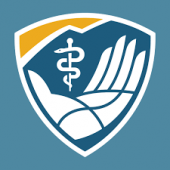
#36: Rocky Mountain University of Health Professions
In the twenty years since its founding, Rocky Mountain University of Health Professions has graduated approximately 2,200 students from its various master’s and doctoral degree programs. The university offers several advanced practice nursing programs. Baccalaureate-prepared nurses can pursue a doctor of nursing practice degree with a family nurse practitioner emphasis. This is a limited-residency program conducted mostly online, with one week spent on-campus each semester. Every graduate of the post-baccalaureate DNP program has passed the FNP certification exam administered by the American Association of Nurse Practitioners. Master’s-prepared nurses can complete a five-semester DNP curriculum offered entirely online. The university also offers post-master’s certificates for aspiring family nurse practitioners and psychiatric-mental health nurse practitioners.
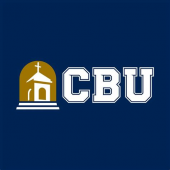
#37: California Baptist University
Students at California Baptist University’s College of Nursing have the opportunity to donate their time, resources, and care through community outreach programs that provide services such as feeding the homeless. Students distribute clothing and food, participate in disaster preparedness, and travel overseas to work alongside nationals in education and health training. The college’s offerings include BSN, entry-level MSN (ELMSN), traditional MSN, and DNP degree programs. Post-master’s certification is also available in five distinct specializations. Over the past decade, BSN graduates have achieved an 86% first-time NCLEX exam pass rate. Their colleagues in the ELMSN program have enjoyed an 85% pass rate over the same time period.
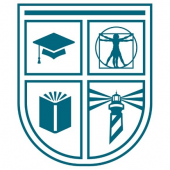
#38: University of St. Augustine for Health Sciences
The University of St. Augustine for Health Sciences is a non-profit university accredited by the Western Association of Schools and Colleges. Additionally, several of the university’s nursing programs are programmatically accredited by the Commission on Collegiate Nursing Education. The School of Nursing offers a breadth of graduate programs including five MSN role specialties, three post-graduate certificates, and a DNP curriculum with both BSN and MSN entry points. Courses are led by faculty-practitioners who are experts in their respective fields. Coursework for all programs is conducted predominantly online. The MSN program also features optional immersions, while the DNP program with FNP role specialty requires one on-campus clinical intensive. Graduates are prepared to seek employment in their chosen role specialty: nurse educator, nurse executive, adult-gerontology nurse practitioner, family nurse practitioner, or psychiatric-mental health nurse practitioner.
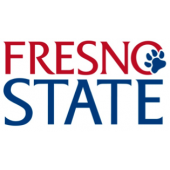
#39: California State University, Fresno
The School of Nursing at California State University, Fresno (Fresno State) offers a traditional prelicensure BSN program, an MSN degree, and a DNP program. Over the past decade, BSN graduates achieved a noteworthy NCLEX-RN exam pass rate of 88%. The MSN has two options: CNS/NE or primary care/NP. Several credential options are also available: a post-baccalaureate school nurse services credential, a post-master’s PMHNP, or a post-master’s NP. Part of the College of Health and Human Services, the School of Nursing at Fresno State offers a variety of clinical placements at major hospitals such as St. Agnes Medical Center and the Veteran’s Administration Medical Center.
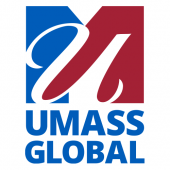
#40: University of Massachusetts Global
UMass Global’s Marybelle and S. Paul Musco School of Nursing and Health Professions is known for blending advanced technology and immersive learning. Most coursework is delivered online, with students gathering periodically for three- to five-day sessions at the school’s high-tech Immersive Learning and Simulation Center. UMass Global offers an accelerated prelicensure BSN, an RN-to-BSN completion pathway, a post-master’s DNP, and two nurse practitioner specialties (family across the lifespan, psychiatric and mental health). Each NP specialty may be pursued through either a BSN-to-DNP degree program or a post-doctoral certificate program. The school also teaches a unique online Survival Spanish course, designed to provide healthcare professionals with basic Spanish communication skills and an understanding of Latino culture.
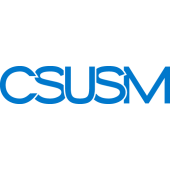
#41: California State University, San Marcos
CSU San Marcos launched its School of Nursing in the fall of 2006. The university now offers four BSN pathways including traditional, accelerated, LVN-to-BSN, and RN-to-BSN. Approximately 150-200 students complete the prelicensure BSN pathways each year. These graduates have enjoyed a stellar 96% NCLEX pass rate over the past decade. CSU San Marcos also has five MSN concentrations: clinical nurse leader, clinical nurse specialist, family nurse practitioner, family psychiatric-mental health nurse practitioner, and nursing education. In 2008, the school opened a satellite campus in Temecula which offers accelerated BSN, RN-to-BSN, and MSN programs to the expanding communities of southwest Riverside County.
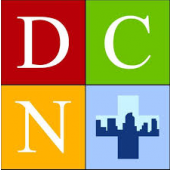
#42: Denver College of Nursing
Denver College of Nursing is a private college focused solely on the art and science of nursing. Students have the opportunity to participate in the Student Nurses Association, community service projects, service learning, and the Global Health Perspective (GHP). Integrated throughout the Denver College of Nursing curriculum, GHP combines classroom training with in-field service-learning internships. On-campus program options include prelicensure ADN and BSN pathways, while RN-to-BSN and MSN programs are offered fully online. Since 2012, Denver College of Nursing’s ADN graduates have achieved a noteworthy 85% pass rate on the NCLEX-RN licensure exam. Over the same time period, approximately 300 BSN graduates annually have scored an impressive 90% NCLEX-RN pass rate.
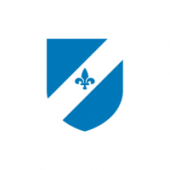
#43: Stanbridge University
Stanbridge University offers four distinct nursing programs: a prelicensure associate degree in vocational nursing, a prelicensure BSN, an RN-to-BSN completion program, and an MSN degree with an emphasis in education. Prelicensure students receive hands-on training in the university’s high-fidelity simulation and nursing skills labs, along with the opportunity to work in the first synthetic human cadaver lab on the West Coast. Stanbridge graduates have achieved a 90% NCLEX-PN pass rate from the Los Angeles campus, a 96% NCLEX-PN pass rate from the Irvine campus, and a remarkable 98% NCLEX-RN pass rate over the past five years. The RN-to-BSN and MSN programs are both conducted 100% online on the school’s proprietary Edverum platform, providing maximum flexibility for working nurses.
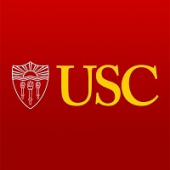
#44: University of Southern California
The University of Southern California conducts an online MSN. Offered through the Suzanne Dworak-Peck School of Social Work, the MSN is designed for RNs who hold a bachelor’s degree and have at least one year of clinical experience. This evidence-based nursing program prepares family nurse practitioners to provide comprehensive care to individuals and communities. Students will complete clinical experiences at family practices, pediatric offices, urgent care facilities, internal medicine clinics, and community health clinics. Graduates of the program are trained to offer integrative care to infants, children, adolescents, and adults throughout their lives.
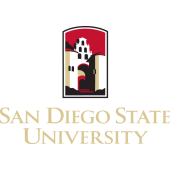
#45: San Diego State University
The SDSU School of Nursing combines classroom instruction with hands-on experience at several venues. Facilities include a media lab, a health assessment lab, a nursing fundamentals skills labs, and the Sharp Healthcare Human Patient Simulation Center. Undergraduates can pursue a traditional BSN degree or an RN-to-BSN completion program. SDSU graduates 100-150 traditional BSN students each year, with a remarkable 96% first-time NCLEX pass rate over the past six years. Graduate students can select an MSN concentration in either advanced practice nursing of adults and the elderly or nursing leadership in healthcare systems.

#46: Westminster College
Westminster College’s School of Nursing and Health Sciences accepts a class of 90 prelicensure BSN students each year. Over the past decade, these students have maintained an impressive NCLEX pass rate of 92%. The BSN curriculum covers important topics like community health, critical care, gerontology, leadership, medical / surgical care, obstetrics, pediatrics, and psychiatric care. The school also offers an RN-to-BSN completion program, a master’s degree for aspiring family nurse practitioners, and two DNP tracks (post-master’s and nurse anesthesia). Westminster’s DNP program in nurse anesthesia is the only such curriculum in the Intermountain West region.
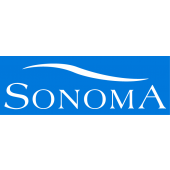
#47: Sonoma State University
The Department of Nursing at Sonoma State University has educated more than 4,000 nurse professionals over the past forty years. Undergraduate pathways include a traditional four-year BSN program and an ADN-to-BSN Collaborative Nursing Education Continuum Model (CNECM) offered in partnership with Napa Valley College, College of Marin, Santa Rosa Junior College, Solano Community College, and Mendocino College. The university graduates 10-40 students annually from the traditional BSN program, with an impressive 98% NCLEX-RN exam pass rate over the past decade. Graduate nursing students can pursue an MSN degree or a post-master’s certificate with an FNP emphasis.
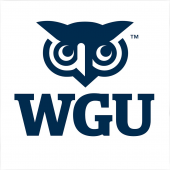
#48: Western Governors University
Western Governors University is an independent nonprofit institution supported by 19 United States governors. The school serves nearly 150,000 students across four colleges. The College of Health Professions offers several nursing programs including a prelicensure BSN, an MSN degree with five specializations, and both RN-to-BSN and RN-to-MSN degree completion pathways. The prelicensure BSN program is conducted in a unique hybrid model – featuring online coursework and clinical rotations at facilities located close to home – for students who live in Florida, Indiana, Missouri, Nevada, New Mexico, Texas, and Utah. The MSN program offers two nurse practitioner specializations (family, psychiatric-mental health) and three non-clinical specializations (leadership and management, education, informatics). The nursing programs at Western Governors University are fully accredited by the Commission on Collegiate Nursing Education.
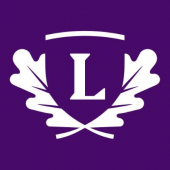
#49: Linfield University
Linfield-Good Samaritan School of Nursing is a partnership between Linfield University and Legacy Good Samaritan Medical Center. The school offers three BSN pathways for undergraduates: a two-year transfer-only program for students who have completed prerequisites, an accelerated 15-month program for students with a non-nursing bachelor’s degree, and a fully online RN-to-BSN completion program. The RN-to-BSN pathway has co-admission partnerships with ADN programs at many Oregon community colleges. The prelicensure BSN pathways graduate close to 200 students annually, with a solid 86% NCLEX pass rate over the past decade and a 93% NCLEX pass rate during 2019. Linfield also offers a one-year, fully online MSN program with a focus on leadership in healthcare ecosystems.

#50: California State University, Sacramento
The Sacramento State School of Nursing enrolls more than 550 students across its BSN and MSN programs. The BSN curriculum offers two pathways: a traditional four-year degree and an RN-to-BSN completion program. Approximately 100-180 students graduate from the traditional BSN program each year. They have achieved an NCLEX pass rate of 97% over the past decade, an amazing streak for a program of this size. The RN-to-BSN pathway includes an innovative collaboration with three local community colleges to facilitate seamless transition from ADN to BSN. Sacramento State’s MSN program prepares BSN-educated nurses for advanced practice roles in administration, clinical practice, education, and school nursing.
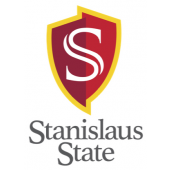
#51: California State University, Stanislaus
The School of Nursing at California State University, Stanislaus (Stanislaus State) offers seven degree pathways. Options include a traditional BSN, an LVN-to-BSN pathway, an RN-to-BSN track for local nurses with an associate degree, an online RN-to-BSN with 24/7 accessibility, an accelerated second BSN (ASBSN), an MSN program, and an MSN degree with FNP concentration. All nursing students will participate in the School of Nursing Simulation Program. Simulation is integrated into the School of Nursing curriculum to provide experiential learning opportunities throughout the program. Over the past decade, prelicensure BSN graduates achieved an outstanding NCLEX-RN exam pass rate of 97%.
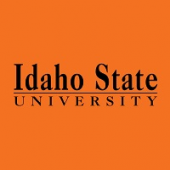
#52: Idaho State University
The College of Nursing at Idaho State University offers six distinct nursing programs. Undergraduate pathways include a traditional BSN, an accelerated BSN, and an RN-to-BSN program. The traditional BSN targets students with no nursing experience, and it offers a special entry point for LPNs. The accelerated BSN is for career switchers who hold a bachelor’s degree in a non-nursing discipline. ISU’s graduate options include MSN, DNP, and nursing PhD programs. The MSN is focused on nursing education and delivered entirely online. The DNP offers specializations in family nurse practitioner and psychiatric mental health nurse practitioner. Both the DNP and PhD programs offer full-time and part-time schedules.
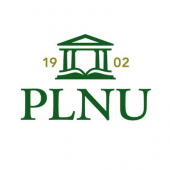
#53: Point Loma Nazarene University
The School of Nursing at Point Loma Nazarene University offers several unique opportunities. These include a study abroad program which Open Doors ranked #15 in the nation, the LoveWorks short-term mission program, and a Health Promotion Center which serves residents of City Heights, a low-income multicultural area of San Diego. BSN candidates can pursue a traditional, LVN-to-BSN, or RN-to-BSN pathway to their degree. Graduates of the BSN program have consistently scored well on their licensure exams, with a strong 86% NCLEX pass rate over the past decade. PLNU also conducts an MSN degree program with a general track and three CNS specializations: adult / gerontology, family / individual health, and pediatrics.
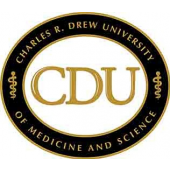
#54: Charles R. Drew University of Medicine and Science
Charles R. Drew University of Medicine and Science is the second-most diverse four-year private nonprofit college in the nation. The university’s Mervyn M. Dymally School of Nursing has historically offered an RN-to-BSN pathway, an entry-level MSN, and two nurse practitioner specializations (family and psychiatric-mental health) with both MSN and post-master’s certificate options. The entry-level MSN is designed for students with a non-nursing baccalaureate degree who wish to prepare for initial RN licensure. Graduates have achieved an 86% first-time pass rate on the NCLEX-RN licensure exam over the past five years. In the fall of 2021, the School of Nursing expanded its program offerings to include a prelicensure BSN track and a post-master’s DNP curriculum. The latter is the first doctoral degree program in CDU’s storied history.
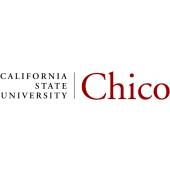
#55: California State University, Chico
CSU Chico’s School of Nursing serves the rural communities of Northern California in several innovative ways. In addition to RN refresher courses, the university operates a Rural California Nursing Preceptorship Program that provides nursing students with rural and semi-rural clinical experiences. CSU Chico also administers the Rural Northern California Clinical Simulation Center Partnership, dubbed the Rural SimCenter. The School of Nursing graduates approximately eighty prelicensure BSN students in each class. These students have achieved a phenomenal 96% first-time NCLEX pass rate over the past decade. CSU Chico also offers an online RN-to-BSN completion program and an online MSN program with nurse educator and nurse leader tracks.
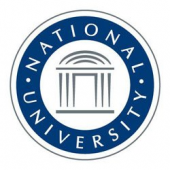
#56: National University
National University is the first academic institution in the world to pursue and achieve Planetree Recognition. The School of Health and Human Services offers ten programs within the Department of Nursing, spanning the undergraduate and graduate levels. Undergraduate options include a traditional BSN, a post-bachelor’s BSN, an LVN-to-BSN pathway, and an online RN-to-BSN. Graduate offerings include an MSN program, two post-graduate nurse practitioner certificates (family and psychiatric-mental health), and a doctor of nurse anesthesia practice (DNAP) degree. National University produces 200-300 prelicensure BSN graduates annually, and these students have achieved a noteworthy 91% pass rate on the NCLEX-RN exam over the past decade.
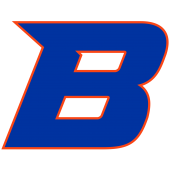
#57: Boise State University
Boise State University’s School of Nursing sits within the College of Health Sciences. Students here can complete a traditional prelicensure BSN degree, an RN-to-BSN pathway, an MSN degree with AGNP specialization, or a DNP degree. MSN students and practicing nurse practitioners can also earn a certificate in either acute care or primary care adult gerontology. Coursework for the RN-to-BSN, MSN, and certificate programs is available online. Boise State’s traditional BSN students perform well on the NCLEX licensure exam, typically passing at a rate of 92% or higher. The most recent cohort of MSN graduates achieved a perfect 100% pass rate on the AGNP board exam.
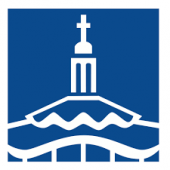
#58: Chaminade University of Honolulu
Chaminade University of Honolulu is the only Catholic university in Hawaii and one of just three Marianist universities in the United States. Chaminade serves 2,200 students with 25 programs leading to an undergraduate or advanced degree. Certificates and associate degree programs are also available. The School of Nursing and Health Professions has a 102-hour CNA certificate program, as well as BSN and DNP degree pathways. The direct-entry BSN requires four years of fulltime study, while the BSN accelerated track may be completed in just 24 months. The DNP program offers executive leader, family nurse practitioner, and psychiatric-mental health nurse practitioner tracks. DNP students participate in multi-day immersion sessions and complete their regular coursework 100% online.
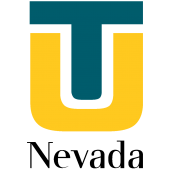
#59: Touro University Nevada
Touro University Nevada opened in 2004 with 78 medical students. Today, the school serves more than 1,000 students across a diverse mix of healthcare and education programs. Nursing degree programs are offered through the College of Health and Human Services. Touro Nevada offers an RN-to-BSN completion program, an MSN degree for aspiring family nurse practitioners, a post-MSN graduate certificate, and a post-master’s DNP pathway. The RN-to-BSN and DNP programs may each be completed 100% online in just one year of study. The MSN program may be completed in seven trimesters mostly online, with three on-campus clinical intensives. All programs are CCNE-accredited.

#60: Vanguard University
Vanguard University launched its first nursing program in 2006. Since then, the school has added several additional programs including a prelicensure BSN, an RN-to-BSN pathway, an MSN degree, and a post-master’s adult gerontology CNS certificate. The prelicensure BSN is designed for freshman and transfer students who are not licensed RNs. The RN-to-BSN is for students currently enrolled in an ADN dual enrollment program at another institution who seek to complete a bachelor’s degree. The MSN is for licensed RNs who already hold a bachelor’s degree, while the twenty-week CNS certificate is for licensed RNs who already hold a master’s degree.
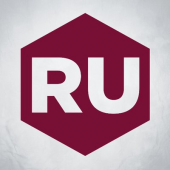
#61: Roseman University of Health Sciences
Since its 1999 founding as the Nevada College of Pharmacy, Roseman University of Health Sciences has educated more than 2,500 healthcare professionals. The College of Nursing offers an 18-month traditional BSN and a 16-month accelerated BSN at its campuses in Henderson, Nevada and South Jordan, Utah. An innovative Veteran-to-BSN curriculum and a recently launched nine-month RN-to-BSN program are also available. Prelicensure BSN students from both campuses have averaged a strong 91% first-time NCLEX-RN pass rate over the past eight years.
#62: Weber State University
Weber State’s Annie Taylor Dee School of Nursing offers a breadth of nursing pathways including a traditional ADN program, an LPN-to-ADN bridge, an RN-to-BSN completion program, and several graduate degrees and certificates. ADN students take the NCLEX-RN licensure examination at the completion of their studies. The school produces 300-400 ADN graduates annually, who have averaged an 86% first-time NCLEX pass rate since 2015. Weber State’s MSN program offers executive and educator concentrations, and the school also awards post-master’s certificates in both fields. The university recently launched a new DNP program with family nurse practitioner and leadership tracks.
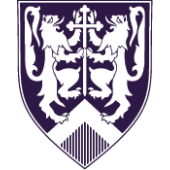
#63: Carroll College
The Department of Nursing at Carroll College offers a unique BSN program that allows students to begin clinical experiences during sophomore year rather than junior year. This enables graduates to leave the program with three years of diverse clinical rotations to their credit. Carroll College also incorporates global outreach into its nursing curriculum. Recent classes have studied abroad in India and attended the International Public Health Nursing Conference in Ireland. Approximately 35-40 students graduate from the Carroll College BSN program each spring. They have achieved a strong 92% NCLEX pass rate over the past decade, and several recent classes have reached 100% employment within six months of graduation.

#64: George Fox University
The School of Nursing at George Fox University prepares students to work in a wide variety of healthcare settings, including acute care, cardiology, nursing education, and medical missions. The BSN program takes four years to complete and admission is highly competitive, with only 48 students admitted each fall semester. George Fox complements its comprehensive BSN curriculum with strong extracurriculars, including a robust student nursing club that meets biweekly and a nationally recognized study abroad program. Over the past decade, School of Nursing graduates have passed the NCLEX licensure exam at an average first-time rate of 89%.
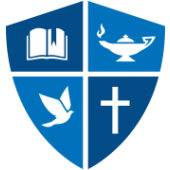
#65: Northwest University
The Mark and Huldah Buntain School of Nursing offers a unique program that sends every nursing major to another country for a month of experiential learning. Recent classes have traveled to India, Kazakhstan, Taiwan, and several countries in Africa. Each undergraduate cohort of 48 students is instructed with top-notch equipment in a robust network of local hospitals such as Providence, Swedish, Seattle Children’s, Evergreen, and Overlake. Over the past decade, these BSN students have achieved an excellent 91% first-time pass rate on the NCLEX licensure exam. In addition to the traditional undergraduate degree, Northwest University also offers online RN-to-BSN and MSN programs.

#66: University of Washington Bothell
The School of Nursing & Health Studies at the University of Washington Bothell offers both BSN and master of nursing (MN) programs. The BSN degree has two tracks: a traditional RN-to-BSN program for transfer students who have already completed an ADN and hold an active RN license, and a first-year entry RN-to-BSN program for university freshman students. This dual-enrollment program between UW Bothell and the nursing program at Everett Community College allows students to graduate with an ADN from EvCC and a BSN from UW Bothell. Both BSN tracks have hybrid and in-person options. The university’s MN program is offered in a hybrid format, meeting twice per month on Fridays with self-directed online activities during the remaining weeks.
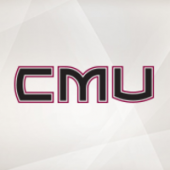
#67: Colorado Mesa University
Colorado Mesa University’s Department of Health Sciences takes a career ladder approach to learning that allows healthcare professionals to pursue their education while maintaining their employment. At the introductory level, CMU offers an LPN certificate program that produces thirty graduates annually. These students have scored a phenomenal 97% pass rate on the NCLEX-PN licensure exam since 2012. Aspiring registered nurses can pursue either an ADN or BSN degree. Graduates from these programs have also performed well on their licensure exams, with an NCLEX-RN pass rate of 87% and 88%, respectively, since 2012. Graduate students can pursue an MSN degree in two distinct specializations (family nurse practitioner, nurse educator) or a DNP degree with an FNP focus. Select coursework is available via online and distance learning technologies.
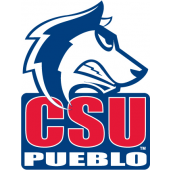
#68: Colorado State University - Pueblo
CSU Pueblo is part of the Colorado State University System, which serves as a major economic engine in the state of Colorado. Established in 1964 and recognized as a School of Nursing in January 2017, the CSU Pueblo nursing program provides various opportunities for aspiring healthcare professionals seeking a BSN, MSN, or DNP degree. The baccalaureate program offers traditional, accelerated, and RN-to-BSN pathways. Traditional BSN students have enjoyed an impressive 91% NCLEX-RN pass rate since 2012, while accelerated BSN students scored a perfect 100% pass rate for three consecutive years (2016 through 2018). Graduate students can pursue nurse practitioner specialization options in adult-gerontology acute care (AGAC), psychiatric-mental health, and a combination AGAC/family focus. The MSN-to-DNP program also offers a population health focus, while the MSN program offers a nurse educator specialization.
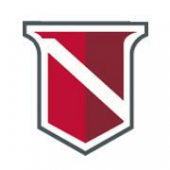
#69: Northwest Nazarene University
Northwest Nazarene University’s Department of Nursing provides undergraduate, degree completion, and graduate programs in professional nursing. NNU’s traditional BSN program includes clinical experiences throughout the Treasure Valley, state-of-the-art equipment in the Thomas Family Health and Science Center, and an annual medical mission trip to places like Ghana, Nicaragua, Peru, and the Ukraine. The school boasts a 96% first-time NCLEX pass rate. Existing RNs may pursue either a BSN degree or an MSN degree entirely online. The MSN curriculum offers an emphasis in either Leadership & Education or Family Nurse Practitioner, and it accommodates the entry of both BSN- and ADN-educated nurses.
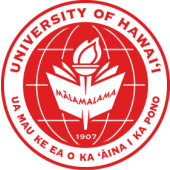
#70: University of Hawaii at Hilo
The School of Nursing at the University of Hawaii at Hilo offers a BSN program with two pathways (traditional, RN-to-BSN) and a DNP program with two pathways (post-BSN, post-MSN). The undergraduate program features a learning lab with low- and high-fidelity manikins in a simulated hospital environment, several rural clinical learning experiences, and the opportunity to engage in health-related projects in the community. Over the past decade, BSN graduates have achieved an 84% pass rate on the NCLEX-RN exam. Graduate students develop the skills to assume leadership roles in a variety of healthcare settings, with a stated focus on improving healthcare delivery for diverse individuals, families, and communities.
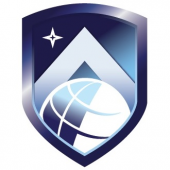
#71: Aspen University
Aspen University has pioneered a different approach to paying for education. The school’s Monthly Payment Plan features one monthly payment, 0% fixed rate of interest, and no down payment. The university provides online and hybrid programs across four schools: Arts & Sciences, Business & Technology, Education, and Nursing & Health Sciences. The School of Nursing & Health Sciences offers several degree options at the baccalaureate, master’s, and doctoral levels. Prelicensure students can pursue a BSN degree through a hybrid program offered in the metropolitan areas of Austin, Texas; Tampa, Florida; Nashville, Tennessee; and Atlanta, Georgia. Post-licensure undergraduates have online RN-to-BSN and RN-to-MSN options. Aspen University also offers five MSN specializations – forensic nursing, informatics, nursing administration and management, nursing education, and public health – as well as a post-master’s DNP program, all conducted 100% online.
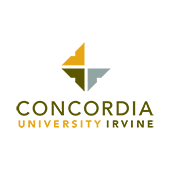
#72: Concordia University Irvine
The nursing program at Concordia University has a new campus, known as Park Place Campus, which features a large skills lab, three simulation labs with sophisticated mannequins, additional classrooms, and a nursing station where students can practice hands-on nursing skills. The school offers an MSN degree and several BSN pathways, including LVN-to-BSN, accelerated BSN, and RN-to-BSN. Students in all programs will complete a curriculum designed around Dr. Jean Watson’s philosophy of caring in nursing, while working closely with faculty role models. Over the past decade, prelicensure BSN graduates have achieved an excellent 96% NCLEX-RN exam pass rate.
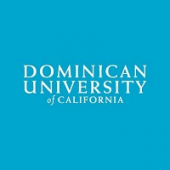
#73: Dominican University of California
The Nursing Department at Dominican University of California is part of the School of Health and Natural Sciences (HNS). The largest school in the university, HNS offers a prelicensure BSN that allows students to gain invaluable hands-on experience in a mock hospital/clinic setting, housed within a state-of-the-art Clinical Simulation Center. At the time of graduation, students will have completed over 1,000 clinical hours. The HNS nursing program welcomes high school graduates, transfer applicants, and those who have served in the military. Over the past decade, the program has graduated 70-130 students annually, with a cumulative NCLEX-RN exam pass rate of approximately 81%.
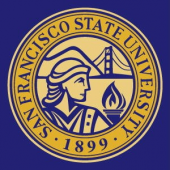
#74: San Francisco State University
As part of SFSU’s commitment to social justice, most of the School of Nursing’s community health practicums are located in underserved San Francisco neighborhoods. The university offers three BSN pathways: a traditional BSN on the SFSU campus, a traditional BSN on the Cañada College campus in Redwood City, and an RN-to-BSN program. Over the past decade, prelicensure BSN graduates have scored a solid NCLEX pass rate of 84%. The MSN program also has three pathways: entry-level, accelerated entry-level, and traditional. Entry-level students have performed even better on the NCLEX exam, with a 90% pass rate over the past decade. The MSN curriculum includes CNS, administration, public health, and FNP emphasis areas.
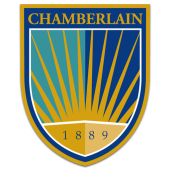
#75: Chamberlain University
Chamberlain University has expanded with the opening of its second campus in California. Launched in spring 2021, the program at the new Irwindale campus aims to meet the state’s growing demand for baccalaureate-prepared nurses. The onsite BSN program can be completed in as little as three years of year-round study, instead of the typical four years with summers off. Students can study and learn at the SIMCARE CENTER, which provides high-tech simulated patient care in clinical learning environments, and the Center for Academic Success, which delivers comprehensive academic resources and support for students. The new Irwindale location complements the university’s existing campus in Sacramento, which launched in 2016. BSN students from the Sacramento campus have a phenomenal 96% first-time pass rate on the NCLEX licensure examination since that program’s inception.
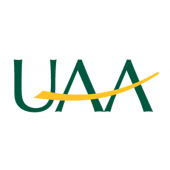
#76: University of Alaska Anchorage
The School of Nursing at the University of Alaska Anchorage launched its first undergraduate nursing program in 1971. Today the school offers ADN, traditional BSN, RN-to-BSN, clinical MSN, leadership MSN, graduate certificate, and DNP programs. Students in the clinical MSN program may choose between the family nurse practitioner and psychiatric-mental health nurse practitioner specializations. The DNP recently incorporated a new BSN entry pathway, enrolling its first class of students in Fall 2019. Prelicensure students consistently perform well on the NCLEX exam, including an 88% ADN pass rate and a 90% BSN pass rate for the most recent cohorts. Some nurse practitioner classes have achieved a perfect 100% pass rate on their certification exams.
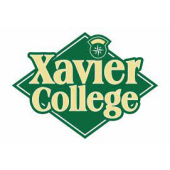
#77: Xavier College
Established in 2005 by a professional RN, Xavier College offers both LVN and ADN pathways for aspiring nurses. The 11-month LVN certificate prepares graduates to sit for the NCLEX-PN licensure examination. Xavier College typically graduates 70-90 students annually from the LVN program. These students have maintained a strong 87% first-time NCLEX-PN pass rate over the past decade. Xavier College recently launched an ADN program requiring 62 semester units of general education and nursing core courses. The inaugural graduating class scored a 95% first-time NCLEX-RN pass rate. The LVN and ADN programs both feature laboratory and clinical components. Clinical practice takes place on campus and at healthcare facilities throughout Stockton, California.
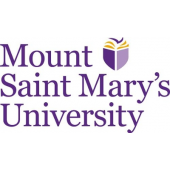
#78: Mount Saint Mary’s University
Mount Saint Mary’s University launched the first BSN program in the state of California. Today, the university provides a variety of options for earning either a BSN or an MSN degree. The BSN program offers three pathways (traditional, accelerated second degree, RN-to-BSN) and enables students to earn a California Public Health Nursing Certificate as part of their studies. BSN graduates have posted an 80% first-time NCLEX pass rate over the past decade. The MSN program features specialty tracks in leadership and administration, nurse educator, and adult-gerontology clinical nurse specialist. The final specialization is also offered as a post-MSN certificate.
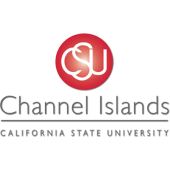
#79: California State University, Channel Islands
California State University, Channel Islands (CSU Channel Islands) has several degree options for nurses. Pathways include the Bridge ADN-to-BSN, RN-to-BSN, and traditional prelicensure BSN. Bridge ADN students can complete the program in as little as 15 months. The RN-to-BSN pathway is administered through Extended University; it takes approximately 22 months to complete, including summers. The traditional BSN program has 2.5-year and three-year options, including summers. Over the past decade, graduates of the traditional BSN program have posted an outstanding NCLEX-RN exam pass rate of 97%.
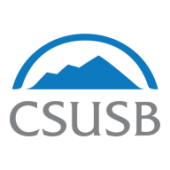
#80: California State University, San Bernardino
The Department of Nursing at California State University, San Bernardino (CSUSB) offers a traditional prelicensure BSN, an RN-to-BSN pathway for California-licensed RNs, and a hybrid online MSN program with several specializations. For the past decade, the traditional BSN program has produced 100-150 graduates annually. These students have enjoyed a solid NCLEX-RN exam pass rate of 88%. CSUSB’s graduate tracks include a population-based MSN, a nurse educator MSN, and an advanced community/public health nursing MSN. These specializations require an additional 57, 65, and 71 units of study, respectively, above the core MSN course load of 51 units.
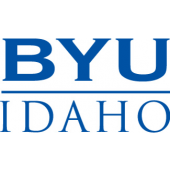
#81: Brigham Young University - Idaho
The Department of Nursing at BYU Idaho (formerly Ricks College) began in 1957, when the school launched its ADN program. Since then, the institution has educated thousands of aspiring nurses. Today, BYU Idaho offers a prelicensure BSN program and an RN-to-BSN completion pathway. Admission is very competitive: the Department of Nursing admits just 48 students per semester, typically accepting 30% of applicants. Not surprisingly, graduates consistently perform well on the NCLEX-RN licensure exam, with an 88% pass rate over the past several academic years. The RN-to-BSN program is conducted entirely online, requiring three to six consecutive semesters of coursework depending upon the student’s academic background.
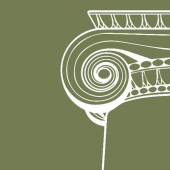
#82: Walla Walla University
Walla Walla University offers a traditional undergraduate prelicensure program leading to a BSN degree. Students spend the first two years of the program at the university’s College Place campus, where they complete general studies, nursing cognates, and nursing courses. The final two years are centered at the Portland nursing campus, where students integrate advanced nursing coursework with clinical experience. Walla Walla University graduates a BSN class of approximately sixty students each year. These students have consistently outperformed state and national averages on their licensure exams, posting a 93% NCLEX pass rate over the past decade.
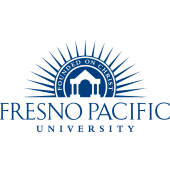
#83: Fresno Pacific University
Fresno Pacific University provides rigorous evidence-based nursing education in a supportive Christian atmosphere, guided by dedicated faculty who hold decades of industry experience. At the undergraduate level, the university has long conducted an RN-to-BSN offering at its North Fresno campus. This completion program prepares students to take their associate degree to the next level, with a focus on clinical decision-making, holistic care, and community and public health nursing. In August 2022, the university will expand its undergraduate offerings by welcoming a cohort of 24 students to its new prelicensure BSN program. At the graduate level, Fresno Pacific University offers an MSN degree with a family nurse practitioner emphasis. The curriculum covers assessment, prevention, and instruction, with a focus on primary care across the lifespan including practicums that prepare participants for this specialty.
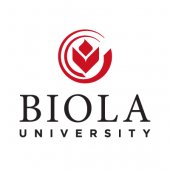
#84: Biola University
Biola University’s Department of Nursing is part of the School of Science, Technology, and Health. The Department offers a traditional prelicensure BSN that was recently ranked sixth on Niche’s list of the Best Colleges for Nursing in California. Program highlights include opportunities for global health experiences in variety of countries and a state-of the-art simulation lab with multiple advanced patient simulators. The simulation lab provides the opportunity for students to experience a variety of clinical realities, from the intensive care unit to the delivery suite. Over the past decade, BSN graduates of Biola University’s Department of Nursing achieved a noteworthy NCLEX-RN exam pass rate of 86%.
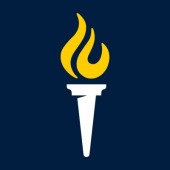
#85: Bushnell University
Established in 1895 as the Eugene Divinity School, Bushnell University now serves more than 800 students across its traditional undergraduate, evening/online undergraduate, and graduate divisions. The School of Nursing offers several degree options. Undergraduates may pursue an accelerated second degree BSN or an RN-to-BSN completion pathway. The accelerated BSN prepares non-nursing bachelor’s degree-holders for initial RN licensure in just 12 months. The RN-to-BSN program provides three start dates per year and 100% online delivery, enabling working adults to complete their baccalaureate degree in 12-20 months. At the graduate level, Bushnell University offers an online MSN degree with concentrations in nursing education and nurse leadership in health systems. The nursing education track is also available as a post-master’s certificate. Students in all programs complete project-based practice experiences in their local communities.
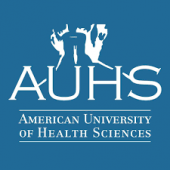
#86: American University of Health Sciences
American University of Health Sciences is a private Christian university that prepares students for careers in the healthcare professions. The school emphasizes service to others both locally and abroad. AUHS’s nursing programs feature small class sizes, hands-on learning opportunities, and experienced faculty. A recent partnership with Charles R. Drew University of Medicine and Science allows for additional work and learning opportunities in underserved communities. The prelicensure BSN program graduates 60-80 students annually, with a notable 83% NCLEX exam pass rate over the past decade. AUHS also offers an RN-to-BSN pathway for existing registered nurses to complete their baccalaureate education.
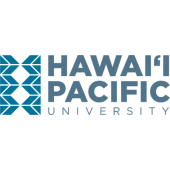
#87: Hawaii Pacific University
The College of Health and Society at Hawaii Pacific University has three degree programs for aspiring nurses: BSN, MSN, and DNP. Post-graduate APRN certificates are also available in the fields of adult-gerontology acute care nurse practitioner and family nurse practitioner. All programs provide hands-on education through clinical placement at healthcare facilities throughout Oahu. Nursing students supplement this clinical training at HPU’s Experiential Learning Center, where they are exposed to planned simulations modeled on real-world medical scenarios. HPU graduates approximately 150 students annually from its undergraduate program. Over the past decade, these students have maintained approximately a 75% pass rate on the NCLEX-RN initial licensure examination.
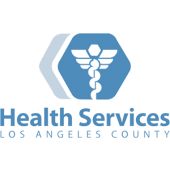
#88: Los Angeles County College of Nursing and Allied Health
Los Angeles County College of Nursing and Allied Health has been a fully functioning training school for nurses since 1901. Each year, the School of Nursing graduates 80-100 ADN students across two tracks: a traditional two-year pathway and an advanced placement option for licensed vocational nurses. These graduates have posted a phenomenal 94% first-time pass rate on the NCLEX-RN licensure exam over the past decade. Clinical nursing experiences are conducted at Los Angeles County Department of Health Services hospitals, including Los Angeles County + USC, Olive View-UCLA, Harbor-UCLA Medical Centers, and Comprehensive Health Centers and Clinics.

#89: Simpson University
The Betty M. Dean School of Nursing at Simpson University offers a prelicensure BSN and an RN-to-BSN track. The traditional BSN program combines nursing and general education courses with opportunities to work alongside community healthcare leaders. Students will complete a professional portfolio, which showcases accomplishments and leads to increased employment opportunities. Since the inception of the prelicensure BSN program, graduates have maintained an exceptional 94% pass rate on the NCLEX-RN exam. The RN-to-BSN program is an accelerated pathway that caters to working RNs who want to develop professional skills. The program is offered on campus, online, or in a hybrid format.
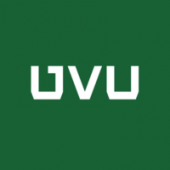
#90: Utah Valley University
Utah Valley University emphasizes holistic nursing and collaborative care throughout its nursing curriculum. The UVU Department of Nursing enrolls approximately 250 students across its ADN, RN-to-BSN, and MSN programs. Prelicensure candidates must begin by completing the ADN program. Approximately eighty students do so annually, with a strong NCLEX pass rate of 90% over the past decade. Nurses may then progress to the RN-to-BSN program, which is offered entirely online to accommodate both full-time and part-time schedules. BSN-educated nurses can enroll in the university’s MSN program, which prepares students for a nurse educator role in either an academic setting or a healthcare institution.
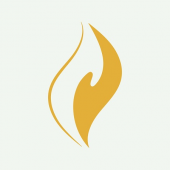
#91: Nightingale College
The nursing curriculum at Nightingale College has diploma and degree pathways that allow students to complete most or all of their coursework online. This allows students in rural communities to attend school while staying close to home. Through Nightingale’s partnership model, students are assigned to local facilities to complete clinical requirements. This provides a continuous flow of nurses to facilities that are in need of nursing help. The college’s nursing pathways include an LPN diploma, an LPN-to-ASN bridge program, a prelicensure BSN, an online RN-to-BSN completion program, and an MSN degree with a nursing education focus. Nightingale College’s baccalaureate and master’s degree programs are accredited by the Commission on Collegiate Nursing Education.
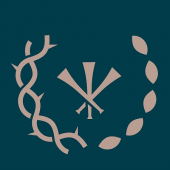
#92: Weimar University
Weimar University provides an educational experience rooted in four core competencies: health and wellness, labor and service, evangelism, and academic excellence. The Nursing Department offers two undergraduate options: a four-semester ADN program for students with no prior nursing experience, and a 12-month RN-to-BSN degree completion pathway. The ADN program offers advanced placement options for LVNs and military personnel, and it prepares students to sit for the NCLEX-RN licensure examination. ADN graduates have scored a phenomenal 98% first-time NCLEX pass rate since the program’s launch. Weimar nursing students receive extensive clinical training in skilled nursing facilities, acute care hospitals, outpatient settings, the Weimar University NEWSTART Lifestyle Program, and the Nedley Depression and Anxiety Recovery Program.
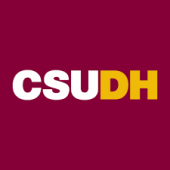
#93: California State University, Dominguez Hills
The School of Nursing at California State University, Dominguez Hills (CSUDH) resides in the College of Health, Human Services, and Nursing. The nursing program accepts registered nurses or students who are currently enrolled in a community college nursing program. Options include a pre-BSN dual enrollment program, an RN-to-BSN pathway, and an MSN degree with administrator, educator, CNS parent-child, and FNP specializations. A post-master’s certificate in nursing education is available, as well as a specialized public health nurse certificate for RNs who hold a bachelor’s degree in a field other than nursing.
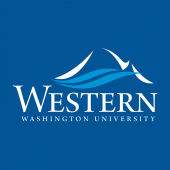
#94: Western Washington University
Western Washington University has an RN-to-BSN program that blends online and face-to-face coursework. Exclusively offered as a transfer degree, the RN-to-BSN curriculum delivers 45 upper-division credits through class meetings held one full day per week. The program may be completed in four quarters on a full-time basis or eight quarters on a part-time basis. Students learn concepts in the classroom during the first half of the curriculum, and then they apply these concepts through practice experiences in the second half of the curriculum. WWU graduates have been hired at many local medical centers including Skagit Valley Hospital, Providence Medical Group & Hospital, and PeaceHealth General Hospital.
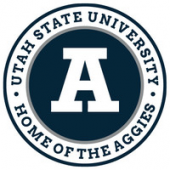
#95: Utah State University
Founded in 1888, Utah State University is Utah’s only land-grant institution. The Department of Nursing and Health Professions is part of the Emma Eccles Jones College of Education and Human Services, one of nine academic colleges in the university. The department offers a full suite of undergraduate nursing programs including a five-credit-hour CNA program, a one-year practical nursing certificate, a two-year associate of science degree in nursing, and a four-year prelicensure baccalaureate degree. The LPN program graduates 30-45 students annually, while the ADN program graduates 40-60 students annually. Both programs have a track record of success on their respective nursing licensure examinations, including a 91% NCLEX-PN pass rate and an 85% NCLEX-RN pass rate over the past four years. The first graduating cohort from the BSN program scored a perfect 100% (21 out of 21) NCLEX-RN pass rate.
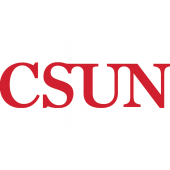
#96: California State University, Northridge
The College of Health and Human Development at California State University, Northridge (CSUN) houses the Department of Nursing, which has a nursing curriculum geared specifically to the needs of the local community. Programs include the ADN-to-BSN Community College Collaborative, the accelerated BSN, and the RN-to-BSN pathway for existing nurses. A public health nurse (PHN) certificate is also available. The Collaborative links CSUN with designated California Community College partners to enable students to earn a BSN degree in just over 2.5 years. Applicants for all programs are eligible to receive credit for military education and experience. Over the past decade, accelerated BSN graduates have achieved an outstanding NCLEX-RN exam pass rate of 92%.

#97: Southern Utah University
Southern Utah University’s Department of Nursing is part of the Walter Maxwell Gibson College of Science and Engineering. Aspiring nurses can earn a prelicensure BSN degree, while ADN- or diploma-prepared RNs can complete an RN-to-BSN program. The prelicensure BSN is a four-year program that features immersive clinicals at local hospitals and other healthcare facilities. Approximately fifty annual graduates have scored a 90% NCLEX pass rate or higher for an impressive seven consecutive years. The RN-to-BSN program employs a blended approach to teaching and learning, with classes delivered both online and on campus.
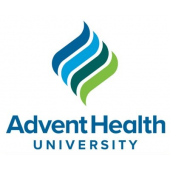
#98: AdventHealth University Denver
AdventHealth University Denver is a faith-based institution established in 2009. AHU Denver is an extension of the environment of excellence offered at AdventHealth University’s main campus in Orlando, Florida. The campus’s proximity to Centura Health’s Porter Adventist Hospital provides a convenient location to fulfill clinical requirements across programs. Hands-on learning also occurs at other Centura Health hospitals and at the Nursing Learning Center, AHU Simulation Center, and Nursing Skills Lab. The school’s prelicensure BSN program is accredited by the Commission on Collegiate Nursing Education. Students enjoy small class sizes, courses taught by instructors with a combined 500+ years of field experience, and guaranteed placements within Centura Health hospitals. BSN graduates are prepared to take the NCLEX-RN licensure examination and pursue employment in the field.
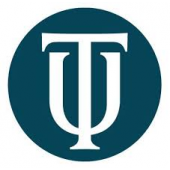
#99: Touro University California
The School of Nursing at Touro University California offers programs designed for RNs who have already earned either an ADN or BSN degree. The school’s MSN program builds upon the strong foundation of ADN-to-BSN education. Graduates of the program may sit for the CNL national certification exam and are eligible for PHN certification through the California Board of Registered Nursing. The school’s DNP program prepares graduates to conduct advanced nursing practice and to sit for the FNP national certification exam.
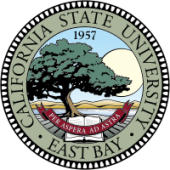
#100: California State University, East Bay
California State University East Bay (Cal State East Bay) houses the Department of Nursing & Health Sciences. Nursing students here may choose from two pathways within the BSN program. One is a traditional prelicensure option, which features two years of pre-nursing requirements and 2.5 years of nursing courses. The other is an RN advanced placement program, which is open only to students who hold California registered nurse licensure. This program can be completed in one year of full-time study, or two years part-time. Over the past decade, 100-125 annual graduates of the traditional BSN program have earned an 89% pass rate on the NCLEX-RN licensure exam.
